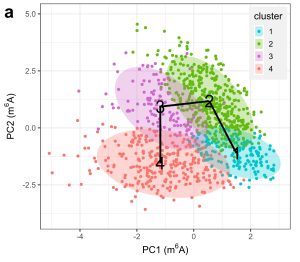19 Dec 2024
Recently, a research paper titled " ‘Corporate “Greening’ and innovation: A reinterpretation based on historical immortals" by Dr King Yoong Lim and Dr Yang Chen from Economics department in International Business School Suzhou (IBSS) at Xi’an Jiaotong-Liverpool University (XJTLU) has been accepted for publication in the Tier-1* journal, Business Strategy and the Environment

The study poses an intriguing question: What connection do the folktales of ancient historical immortals like Zhang Sanfeng and Qiu Chuji have with modern Chinese enterprises' "greening" strategies, apart from those in the tourism and cultural sectors? Chinese immortal folklores, many of which stem from the initial Taoism teachings of Lao Tzu (around the 5th century BC) that advocate spontaneous and natural simplicity in behavior and are thus "nature-friendly" in their portrayals, have become integral parts of the informal local socio-psycho-cultural institutions. These can potentially influence the pro-environmental vision and mission of neighboring enterprises. Under the influence of such unique socio-psycho-cultural institutional elements, some Chinese enterprises might be inclined to be overly ambitious in their pursuit of ESG agendas. However, as the achievement of tangible environmental performances often takes years, a possible disparity between the "talk" and "walk" of corporate "greening" strategies may emerge, leading to some enterprises' "green-championing" endeavors being misconstrued as greenwashing.
In collaboration with external partners from Nottingham Trent University and the University of Birmingham in the UK, Dr Lim and Dr Chen, based on 22,589 observations, differentiated and explored how two distinct types of green externalities - the Porter Hypothesis (PH) effect and the greenwashing effect - interact with the corporate rent-seeking effect in shaping firm-level innovation choices. By employing path dependence and using each enterprise's geographical proximity to the nearest origin point of historical immortals as an instrument for corporate greenwashing, they discovered a novel positive greenwashing externality that drives innovation. Although this externality could be attenuated by corporate rent-seeking, it exists in addition to the conventional PH effect. This implies that what is perceived as "greenwashing" in China might actually mirror corporate green championing behaviors, which are considerably influenced by local sociocultural factors. Despite appearing controversial, this novel greenwashing externality aligns with the rationale that Chinese entrepreneurs who grew up hearing "environmentally harmonious" tales tend to become green champions.
The research findings are pertinent to the organizational development of contemporary Chinese businesses across all industries, particularly in nurturing organizational environmental culture. Empirical evidence indicates that this has a synergistic relationship with cultivating the appreciation of local socio-cultural values among stakeholders such as the workforce, suppliers, and customers. The results also spotlight a unique pro-environmentalism narrative within the context of Chinese enterprises and society, similar to how Weberian Protestantism, with its more progressive open-mindedness, has been frequently documented as beneficial for businesses. Understanding the balance of Yin and Yang does not equate to blind superstition. Even in the face of potential short-term doubts regarding their "greening" attempts, it is crucial for Chinese firms to maintain a long-term perspective in their corporate ESG milestone designs and continue to embrace positive environmental appreciation teachings. This involves deliberate efforts to tap into and incorporate the positive aspects of unique Chinese cultural values into their day-to-day operations, with the aim of evolving into sustainable and ethical enterprises. This research offers novel insights and practical guidance for enterprises in their journey of "greening" and innovation, potentially spurring further exploration and progress in the domain of sustainable development among Chinese enterprises.
Business Strategy and the Environment is a leading sustainable business journal aiming to advance the understanding of green business strategies for improving the natural environment. Covering topics including corporate environmental management, eco-innovation, green finance, and the circular economy, the journal welcomes contributions which examine the role of environmental regulation and policy in the business sector. The journal is ranked as Tier-1*, with an ABS rating of 3, an ABDC rating of A. Its Journal Citation Reports (JCR) Impact Factor stands at 12.5, and it is classified as Q1 in the Chinese Academy of Sciences (CAS).
Dr King Yoong Lim (in short, King) is an Associate Professor in Economics. Prior to joining IBSS, XJTLU in April 2022, King worked as a Lecturer/Senior Lecturer with the Nottingham Business School, Nottingham Trent University between the April of year 2018 and 2022. He has also worked as a Teaching Associate at the Lancaster University Management School. Kings primary research interest is in the area of Development Macroeconomics, Innovation Strategies (both Macro and Micro), and Energy Economics. To date, his publication includes articles in ABS3/ABDC-A (and above) journals, such as Research Policy, Energy Economics, The Energy Journal, Macroeconomic Dynamics, Emerging Markets Review, Journal of Macroeconomics, BE Journal of Macroeconomics, Economic Modelling, International Journal of Finance Economics, International Review of Economics & Finance, and Scottish Journal of Political Economy. King is also an active participant in the wider research and policy community. He currently serves as an Associate Editor with the journal, Economic Issues (ABS 1; ABDC-B). A three-time STC Consultant with the World Bank Group, King has previously contributed to Malaysia’s Capital Market Masterplan 2, National Innovation Strategy (and its associated GLC Innovation Transformation Programme), and has served as the Lead Consultant in reviewing and re-developing the Kenya Revenue Authorities’ national tax revenue forecasting framework in year 2019.
Dr Yang Chen is an Associate Professor in Xi’an Jiaotong-Liverpool University and has been the Programme Director of Economics and Finance programme from 2016-2019, and the Deputy Director of Research Institute of Economic Integration during 2015-2017. She was mainly responsible for organizing the Conference of Asia and Pacific Economies (CAPE) since 2013 joint with the Asian Development Bank Institute (ADBI). She obtained the PhD Degree in Economics from Nanyang Technological University (NTU). Her research interests mainly include urban economics, public finance, environmental economics, and development issues on Chinese economy. She has published in internationally renowned journals, such as Asia Pacific Journal of Management, Cambridge Journal of Regions, Economy and Society, Oxford Economic Papers, Economic Letters, Energy Economics, Economic Modelling, Finance Research Letters, International Journal of Finance and Economics, Journal of Environmental Management, European Journal of Innovation Management, Journal of Regional Science, Journal of the Asia Pacific Economy, and Urban Studies. Her research projects have been funded by Provincial Government of Jiangsu on talent agglomeration, by Lincoln Institute on fiscal decentralization, and by Asian Development Bank (ADB) on innovation network. She has also published one book as well as multiple book chapters by internationally renowned publisher.
19 Dec 2024








